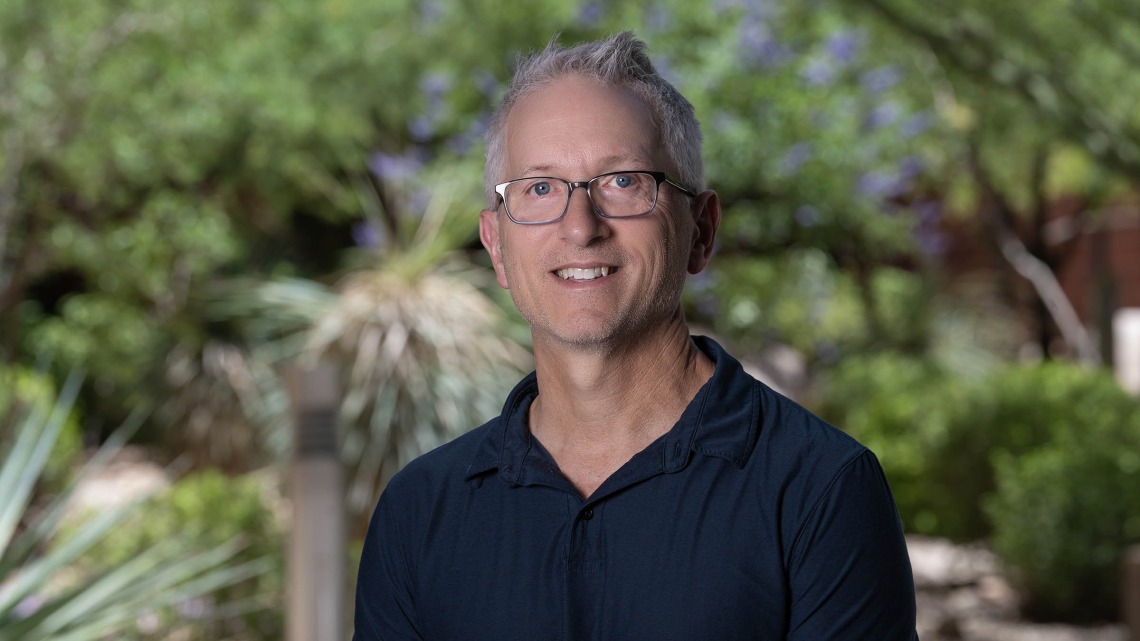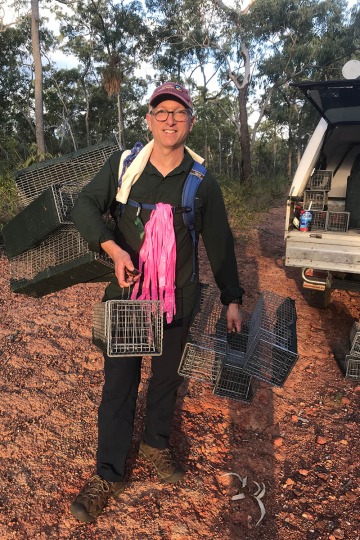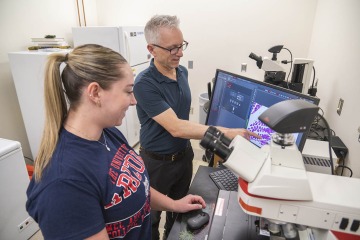Warming Alaska: On the frontline of climate change
Nature-loving Dr. Frank von Hippel says the melting permafrost and changing growing season are signs of the need for the One Health initiative.

Frank von Hippel, PhD, an ecotoxicologist who studies pollution and contaminants, and how they impact people, wildlife and the environment.
The year is 1987. You are offered a role at a prestigious research institute in Stockholm by Arthur Westing, PhD, best known for his research on the environmental impacts of war. You show up, introduce yourself, and he is crestfallen when he realizes you are a college student.
Expecting Frank von Hippel, the renowned theoretical physicist and cofounder of Princeton University’s Program on Science and Global Security and the International Panel on Fissile Materials, the researcher came face to face with Frank von Hippel, college student, nephew and namesake of the former assistant director for national security in the White House Office of Science and Technology.
You might say the research institute got a different sort of von Hippel.
Alaskan inspiration
Growing up “feral” in Alaska gave young Frank von Hippel, PhD, a professor of environmental health sciences in the University of Arizona Mel and Enid Zuckerman College of Public Health, a front-seat view to the impacts of climate change.

For Frank von Hippel, PhD, fieldwork keeps him on the road for long stretches of time. Here he is on Groote Island, Australia, where he was studying the impact of a manganese mine on endangered marsupials. (Photo courtesy of Frank von Hippel)
“I was really lucky to grow up in a place that was very clean,” he said. “We had clean water, clean air and a clean environment. Our farm was an organic farm, so we didn’t use pesticides.” That “feral” youth? It was the “run free and play in the outdoors” kind of life where the only requirement from his parents was to be home by dinner.
This free-roaming mentality continues for Dr. von Hippel today. When he’s not leading the UArizona Health Sciences’ One Health initiative, or conducting field research, or interviewing experts around the world for his podcast, or getting his daily six-mile run in, he can be found out in nature, hiking or enjoying the wilds.
That time in nature can be conducive to idea generation as well as adrenalin inducing. When Dr. von Hippel was on the faculty at the University of Alaska Anchorage, he and C. Loren Buck, PhD, a colleague at UAA and now a researcher at Northern Arizona University, went out for a spring mountain bike ride near the campus to casually discuss a proposal they were working on. But spring is also calving season for moose, and that can make the enormous yet fast animals unpredictable and dangerous.
As they were on the trail, the researchers saw a mother and calf up ahead. They stopped, dismounted their bikes and observed the mother. When it appeared she was relaxed, Drs. von Hippel and Buck decided it was safe to pass. Just as they thought they were safely beyond the animals, “I was alerted by crashing sounds coming from behind and as I turned to see what was happening, I saw a blur and the flattened ears of the enraged mother moose bearing down on us,” Dr. Buck said. Quickly yelling to Dr. von Hippel to go faster, they furiously pedaled their bikes away from the onrushing moose.
But before they had a chance to catch their breath from the first charge, the mother moose appeared again. “It turns out that she knew the forest better than we did and managed to cut the corner to avoid the downhill and intercept us a quarter mile farther on,” said Dr. Buck. “This last chase continued for the better part of our pell-mell ride back to campus. We were never certain of whether we were going to be overtaken.”
While no scientific progress was made that day, it was one that would not be forgotten by either. They have closely collaborated on their research ever since.
The One Health philosophy
Growing up in those wide-open spaces led to Dr. von Hippel’s interest in the environment and biology. “I think my childhood is relevant to the work that I do,” he said. “I am an ecotoxicologist. I study pollution and contaminants, and how they impact people, wildlife and the environment. And that is very much One Health because when there's pollution, it impacts everybody – people and nature. I specifically work with smaller communities, mostly Indigenous communities around the world, mostly in remote places, and underserved communities.”

Dr. von Hippel works with Allyson Varcoe in the lab.
Alaska was home to many military installations that were abandoned at the end of the Cold War. Unfortunately, chemicals such as PCBs and petroleum products were typically buried on site rather than hauled away. With the Arctic warming four times faster than the rest of the planet, the permafrost that previously held these chemicals is melting, allowing contaminants to leach into the food web. “We’re working on that problem,” Dr. von Hippel said.
In addition to the toxic soup of contaminants from the military installations, the permafrost also can hold viruses and bacteria for a long time. “Think about influenza pandemics that devastated Indigenous peoples in the Arctic. People who died there were buried in the permafrost so you could have new disease outbreaks if the virus is exposed and infects an animal host,” he said.
Problems brought by climate change, pollution and zoonotic diseases all point to interrelated solutions like One Health. Dr. von Hippel said his research is inherently interdisciplinary and the team typically includes several biologists, as well as a chemist, an anthropologist and others doing community interventions.
Front-row view to climate change
Life on the family farm in Palmer, Alaska – “We were the only Jewish pig farmers in Alaska,” he says with a chuckle – gave Dr. von Hippel first-hand experience with a changing climate. When he was younger, the growing season for the farm was short – about three months. But now the season is longer, and agriculture is increasing at higher latitudes in places like Alaska, Canada and Siberia. While that presents some benefits for society, high latitudes are also faced with many challenges. Retreating sea ice and melting permafrost are leading to coastal erosion and flooding, as well as destabilized infrastructure. The connections of a warming planet, changes to agriculture, impacts on infrastructure and changing dynamics of zoonotic diseases are the kinds of challenges that One Health is all about.
A graduate of Dartmouth College, Dr. von Hippel received his doctorate in integrative biology from the University of California, Berkeley. While an assistant professor at Columbia University, Dr. von Hippel taught field courses in Arizona and northern Mexico in connection with the Biosphere II, which was then an extension of Columbia. He returned to Alaska for nearly two decades before joining the faculty at Northern Arizona University in 2016. In 2021, he arrived at the University of Arizona Health Sciences to take on the One Health initiative.
His research and work with the One Health initiative keeps him on the road for long periods of time, but that doesn’t mean he can’t continue to share lessons learned. A lover of languages, Dr. von Hippel wrote not only The Chemical Age, a book about how chemists impacted human history, but also created The Science History podcast, where he has hosted a virtual who’s who of researchers across a variety of topics and from around the world. The latest episode features Arlene Blum, a pioneering alpinist who summited mountains around the world and founded the Green Science Policy Institute, which has been working to ban toxic chemicals from many products.
He has been on the other side of the podcast mic, as a guest on the Joe Rogan Experience, sharing insights on pollution research. Dr. von Hippel’s ability to reach people and share the importance of the One Health philosophy no matter the platform inspires his students and collaborators.
“Frank is a passionate and forward-thinking scientist and leader within the scientific community,” said Dr. Buck. “He has a real knack for distilling complicated problems into effective action.”

